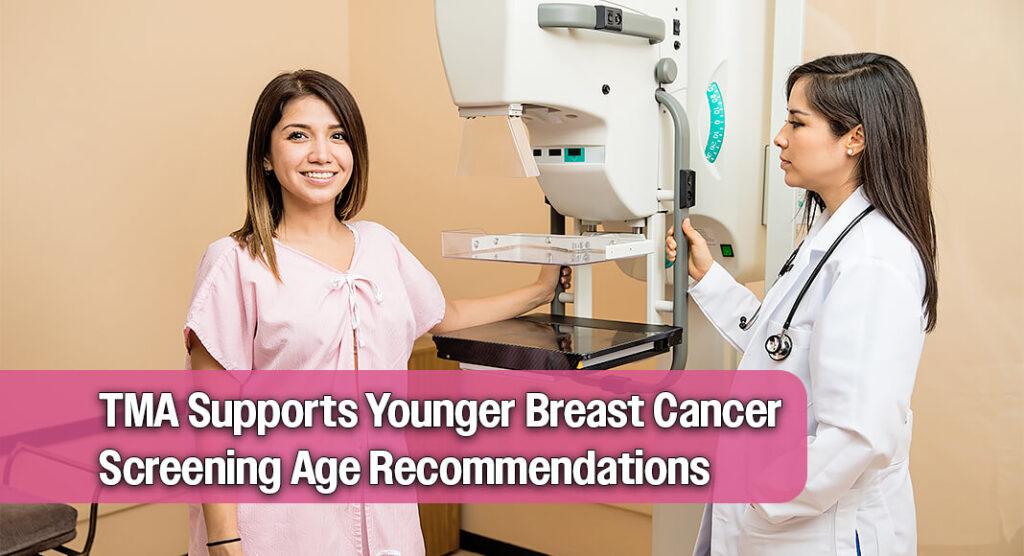
Mega Doctor News
TEXAS MEDICAL ASSOCIATION – Women should begin routine annual mammography screenings at age 40, according to guidelines by the American College of Radiology and Society of Breast Imaging (ACR/SBI). Breast cancer screening guidelines vary on the initiation age for mammograms (40 versus 45 versus 50 years of age) and screening frequency (annual versus biennial). At its 2025 annual meeting, the Texas Medical Association (TMA) House of Delegates adopted policy supporting the ACR/SBI recommendation that women of average risk begin undergoing annual mammograms at age 40, with no upper age limit.
“More and more younger people are being diagnosed with cancer, so it made sense to lower the [screening] age,” said Terri L. Woodard, MD, co-chair of the TMA Committee on Cancer, which advocated support for the change. “All decisions about mammography screening should be using shared decision-making between patients and their physicians.”
TMA also wants to raise awareness among patients and physicians on the importance of the guidelines and to encourage state funding of programs that allow greater access to mammography. October is Breast Cancer Awareness Month.
“Screening saves lives,” Dr. Woodard said.
Breast cancer is the most common cancer diagnosis affecting women, aside from skin cancer. Breast cancer cases are increasing among Texas women under age 50.
The TMA committee also advocates improving access to mobile mammography screening units to help Texans in underserved areas where screening opportunities are more scarce.
Dr. Woodard noted patients’ access to health care is uneven. “It made sense to try to improve access to people who might be limited by finances, by transportation issues, and so forth,” she said.
Both TMA initiatives aim to increase awareness and action among Texas patients, because cancer is so common.
Approximately one in eight women in the U.S. is diagnosed with breast cancer in their lifetime and one in 43 women will die from it, physicians note. Breast cancer accounts for 30% of new cancer diagnoses each year. According to the Texas Department of State Health Services, an estimated 21,083 Texas women were diagnosed with breast cancer in 2024 and 3,535 were estimated to have died from it.
Dr. Woodard is a Houston reproductive endocrinologist and fertility specialist who works primarily with patients who are at risk or who have had cancer. She has seen patients put off getting screened, only to receive a cancer diagnosis later.
“Many women in their 40s have so many competing priorities,” said Dr. Woodard. “We’re working, we’re taking care of children, we’re taking care of parents; and a lot of times we don’t put ourselves first. Sometimes we need to hear that this is something that you should and need to do.”
She said some women of reproductive age who have recently been pregnant experience delayed cancer diagnoses.
“They find a mass and they figure, ‘It’s related to breastfeeding. It’s probably nothing.’ And they go on without being evaluated.”
Dr. Woodard’s goal is simple: to raise awareness.
“We want fewer women to die of cancer,” she said. “We want people to have access to screening and literally save their lives.”
TMA is the largest state medical society in the nation, representing more than 59,000 physician and medical student members. It is located in Austin and has 110 component county medical societies around the state. TMA’s key objective since 1853 is to improve the health of all Texans.








